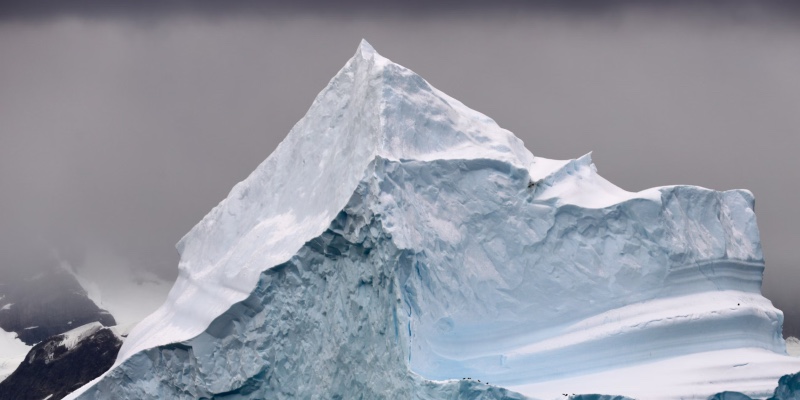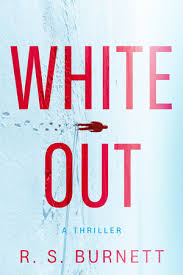In 2018, news outlets around the world reported the story of Russian scientific engineer Sergey Savitsky, who was living at the remote Antarctic research base, Bellingshausen Station, on King George Island.
Savitsky, 54, had apparently snapped and stabbed his colleague Oleg Beloguzov, a 52-year-old welder, with a kitchen knife in the base’s canteen. Chilean news outlet T13 reported that Beloguzov was evacuated to the Magallanes Clinical Hospital where he underwent surgery and was discharged two weeks later.
According to Russian news agency Interfax, the incident was potentially fulled by “tensions in a confined space”.
And not just a confined space, but a confined space in a frozen, inhospitable, inaccessible and often very dark place, from which there is literally no escape – especially in winter when these bases are often entirely cut off for months at a time with no access by air or sea.
But what – apart from the extreme conditions – finally tipped Savitsky over the edge, causing him to launch such a brutal attack on his co-worker?
UK newspaper The Sun claimed both men were avid readers, and would pass the long cold nights by reading books from the base’s library – that is until Savitsky became enraged as Beloguzov “kept telling his colleague the endings of books before he read them”.
Sadly, there is no further evidence for Savitsky’s motive other than The Sun’s unattributed quote, so we may never know whether it’s true.
But the case raised a number of interesting questions: is that the first and only recorded instance of a stabbing/violent crime/attempted murder in Antarctica? What other crimes have been perpetrated in the frozen continent – and what happens to those who are accused?
Although a number of countries claim sovereignty over parts of Antarctica, it isn’t governed in the same way as the rest of the world. There is no police force, no judiciary, no prisons.
Instead, under the 1959 Antarctic Treaty, anyone accused of a crime in Antarctica is subject to the laws of their own country.
That’s all well and good, but how does that work in practice? What happens if, as in Savitsky’s case, someone’s committed a violent act, but the base is inaccessible and/or locked down for the winter, meaning removing them immediately is not possible?
Savitsky, it has been reported, gave himself up to the station commander and was then, somewhat bizarrely, forced to live in the base’s Russian Orthodox Church for 10 days until they could fly him back to Russia for trial.
Canadian Geographic reports a similar case from 1959 at Russia’s Vostok Station. It is one of the most isolated bases on the continent, situated well inland at the southern Point of Cold – that is the place with the lowest natural temperature on earth, of −89.2 °C, or −128.6 °F. (Sidenote: Point of Cold would also make an excellent title for a polar thriller…).
This time it was apparently an argument over a game of chess that caused one scientist to murder a colleague (though other reports claim the victim survived). Canadian Geographic says chess was banned at all Russian Antarctic stations following the attack, which makes sense – though if I were in charge, I’d also ban Monopoly too, just to be on the safe side.
But reports of violence aren’t limited to Russian bases in the Antarctic.
Associated Press recounts the tale of a fight that broke out between two cooks based at the American McMurdo Station in 1996. According to the report, one attacked the other with “the claw end of a hammer”, and then injured a third cook who tried to intervene.
“Both victims required stitches, but should recover fully,” the base commander said at the time.
This time the attacker wasn’t sent to live with the priests in the church but was instead held in custody and watched around the clock until the arrival of three FBI agents sent to investigate – which is believed to be one of the very rare cases where law enforcement officers have been sent to the frozen continent.
Investigators were also called in for the mysterious case of Rodney Marks.
In May of 2000, the 32-year-old Australian astrophysicist was stationed at the Amundson-Scott South Pole base when he fell ill, three times visiting the station doctor suffering from a fever, nausea and stomach pains. The following day, he was dead.
Marks’ body was kept in a freezer for six months until the summer arrived and it could be transferred back to Christchurch in New Zealand for an autopsy.
The American National Science Foundation which operates the base said in a press release Marks had “apparently died of natural causes” – but the post mortem results told a different story.
Officials were shocked with it was discovered the recently engaged scientist had been poisoned with methanol.
The complex nature of Antarctica’s administration meant both New Zealand – who claim the territory where the base is located – and the US launched investigations, but neither have publicly explained the death.
Was one of the other 49 people stationed at the base responsible for poisoning Marks? Did someone literally get away with murder in the coldest of cold cases? We may never know.
We do know what happened to the Argentine Antarctic base, the Almirante Brown Station, in 1984.
Reportedly furious at being ordered to spend another winter at the base, the resident doctor ensured he – and his colleagues – would instead be taken home on the last ship of the season. How? He burned the station down.
Not very subtle, but certainly effective.
It’s perhaps no wonder some of the people based at these remote Antarctic stations snap. The cold, the loneliness, the isolation, the monotony of eating, sleeping, working and living in the same place with the same people for month after month with no possibility of leaving would test the patience and tolerance of the most even-tempered person.
Could YOU be sure you wouldn’t crack and reach for the carving knife if your annoying co-worker kept revealing the endings to the books you were reading, or cheated at chess every day for months on end?
Or maybe you’d do anything – even setting fire to your own base – to avoid having to endure another dark, cold and claustrophobic polar winter.
Antarctica is a fascinating place. Remote. Vast. Frozen. Deserted – almost. But there are people there, and wherever there are people, there is crime.
***


















